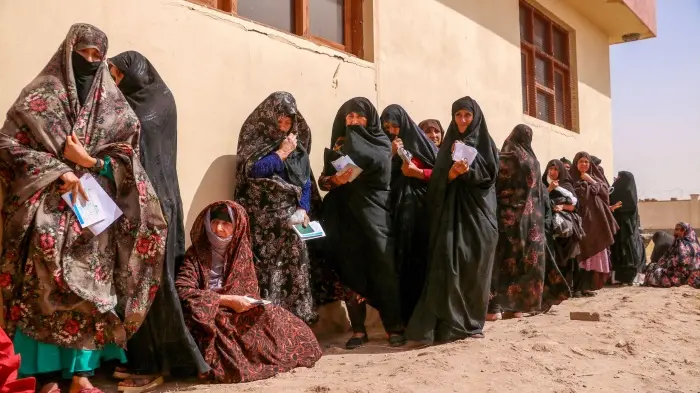In this article, I will discuss the Top Countries Where Cryptocurrency Is Banned in 2025. As the use of digital currencies expands across the globe, some countries have implemented outright bans in order to curb fraudulent practices, maintain legal financial order, and prevent abuse of the currencies.
These bans need to be understood by crypto investors and traders to remain legal and compliant while operating in the essentially borderless crypto market.
Key Point & Top Countries Where Cryptocurrency Is Banned
| Country | Year of Ban / Restriction | Key Reason for Ban / Note |
|---|---|---|
| China | 2021 | Strict regulations to prevent financial risk and fraud; crypto trading and mining banned. |
| Afghanistan | 2022 | Concerns over money laundering and illegal financial activities. |
| Algeria | 2018 | Cryptocurrency use is illegal; financial instability concerns. |
| Bangladesh | 2017 | Risk of fraud and lack of legal framework for crypto. |
| Bolivia | 2014 | Prohibition due to financial and economic security concerns. |
| Egypt | 2020 | Islamic finance laws; concerns over fraud and terrorism financing. |
| Iraq | 2021 | Crypto trading banned due to financial instability and fraud risk. |
| Morocco | 2017 | Crypto transactions prohibited due to fraud and volatility risks. |
| Nepal | 2017 | Bitcoin and other crypto banned; concerns about scams and unregulated market. |
| Qatar | 2022 | Crypto banned for unlicensed trading; focus on consumer protection. |
1. China
Regulatory penalties in China and the mining ban since 2021 make for a long-stretched ban on cryptocurrency and a lack of decentralized options. China, purportedly, focuses on the development of the centralized digital yuan and digital currencies to remain in favor of state control.

To favor state control, the PBoC (People’s Bank of China) regularly reinforces the ban on crypto to mitigate the risks of financial fraud and market instability. China remains a prime example of a country where cryptocurrency is not legalized.
China Features
- Absolute Prohibition: All forms of cryptocurrency trading and mining are illegal.
- Digital Currency Focus: The government emphasizes the legal digital yuan.
- Legal Ramifications: Individuals or businesses breaching the laws will face heavy fines.
2. Afghanistan
Afghanistan’s primary reason for banning crypto is to avoid money laundering, fraud, and financing illegal activities. The government and central bank have repeatedly warned against crypto trading because it is neither legally safe nor regulated.

The economy is extremely fragile, and the banking system is rudimentary, thus risk-taking in the banking system is inappropriate and unacceptable. Potential fines, and even legal charges, await those who try crypto trading.
Afghanistan, like many other countries with weak economies and security problems, is forced to cashed it as illegal crypto trading for its residents. That is why it remains one of the most crypto trading restricted countries in the world in 2025.
Afghanistan Features
- Illegal Trade Restrictions: Cryptocurrency use is banned due to the fraudulent and laundering concerns.
- Risky Economic Condition: The country’s thin banking services adds to the crypto risk.
- Enforcement Measures: Fines and legal actions are enforced on residents trading crypto.
3. Algeria
Since 2018, Algeria has banned crypto due to the weak financial and economic conditions of the country. The central bank declared the buying, selling, and the use of virtual money as illegal, and those that engage in crypto transactions expose themselves to fines and even imprisonment.

The Algerian government is concerned that lose crypto and decentralized finance systems would destabilize the country’s financial system and independence of the Algerian currency. Algeria, like most crypto restricted countries, has also implemented weak regulations to avoid scams, thus positioning it among the most crypto banned counties in 2025.
Algeria Features
- Prohibited Transactions: Buying, selling or holding of cryptocurrencies is banned.
- Fragile Economy: The projected risk on the national currency and economy is the primary reason for the ban.
- Unregulated Environment: The absence of legal structures for cryptocurrencies increases the probability of scams and fraud.
4. Bangladesh
Unlike many other nations in South Asia, Bangladesh remains advanced in the use of the most outdated national payment systems. Yet, cryptocurrency in Bangladesh is illegal and purportedly banned due to some unsystematized fears of financial crimes to be within the scope of cryptocurrency adoption.

These fears, however, seem unfounded given the limitations of Bangladesh’s financial system. Enforcement of such bans is, arguably, more of an institutional economic perspective in order to lower the regulatory financial risks linked to scams, forfeiture, and laundering. Bangladesh is in the position to minimize the financial risks associated with cryptocurrency, which enables the bans to be enforced.
This explains the strict adoption of enforced financial regulation relating to the bans on cryptocurrency, thus, Bangladesh remains justified in being financially prioritized and legally safe from the risks of unregulated and illegal cryptocurrency adoption in 2025.
Bangladesh Features
- Complete Ban: Due to the financial crime risks, cryptocurrency is illegal in Bangladesh.
- Official Crypto Warnings: Government crypto distancing is enforced by the central bank.
- Scam Avoidance: Unregulated, high-risk trading and scams were the motive for the crime ban.
5. Bolivia
Not only was Bolivia the first to ban cryptocurrencies in 2014, but it was also one of the very first countries to make the ban illegitimate. This was done with the justification of financial security, fraud, and extreme market volatility.

Speculation lies solely in the account of cryptocurrencies, making it very legal and justifiable for the Bolivian government to impose a ban.
Absolute monetary control is distributed, and extreme legal consequences are posed for people trying to invest in crypto and evade these laws. This heavily restricts Bolivia to be one of the top countries with crypto bans.
Bolivia Features
- Early Ban: Bolivia was the first to ban cryptocurrency in 2014.
- Risk Avoidance: Volatile and speculative financial risks are prevented.
- Legal Measures: The crypto ban is enforced and violators are prosecuted.
6. Egypt
Since 2020, Egypt has placed a full ban on cryptocurrencies. This was a consequence of ‘Islamic’ finance laws, controversies regarding fraud, financing terrorism, and market volatility. The Financial Regulatory Authority in Egypt instructed citizens not to use or trade cryptocurrencies, and declared any unlicensed crypto transactions as illegal. While the state promotes the development of(digital) economies,

it is still decentralized crypto banned. Denominated crypto. This is an example of the state focusing on the balance of innovation and security. Egypt is an example of how strict and divided the laws on crypto can be. Because of this, it is considered one of the leading countries on the list of banned cryptocurrencies in 2025.
Egypt Features
- Regulated Approach: Crypto is banned as it contravenes Islamic finance laws.
- Fraud & Security: It is banned to prevent fraudulent scams and illegal financing.
- Official Warning: There is an official warning to the public not to use or trade digital currency.
7. Iraq
Iraq has since banned crypto in 2021. This was due to the central bank of Iraq forbidding any financial institution and banks to trade any cryptocurrencies and citizens in digital assets. With the economic instability of Iraq, unregulated crypto was seen as a potential risk as it can be used for illegal activities.

There have been an(v) Iraq is a primary example of countries with economic vulnerability as explained in the old economic management. Because of this, it is considered one of the leading countries on the list of banned cryptocurrencies in 2025.
Iraq Features
- Central Bank Ban: Banks are banned from dealing with crypto.
- Fraud & Instability: There are no regulations or controls around crypto and this is a destabilizing factor for the economy.
- Legal Penalties: There is a warning to the public saying that trading or investing in crypto is prohibited.
8. Morocco
The Moroccan government prohibits all cryptocurrency transactions since 2017 due to potential breaches of the law, volatility, and high risks of fraud. All Moroccan overseas fraud offices state unequivocally that all operations and transactions involving cryptocurrency are illegal and will face prosecution to the fullest extent of the law.

Protection of the consumer, prevention of the laundering of capital, and the maintenance of the overall stability of the financial systems within and outside the nation remain the utmost priority of the government, focusing on adherence to the issues of legality.
The Moroccan government has chosen the “wait and see” approach over the adoption of cryptocurrency, as it still remains one of the most top and conservative nations with the adoption of cryptocurrency since 2017.
Morocco Features
- Transaction Ban: All operations with crypto currency is sanctioned.
- Consumer Protection: The government focuses on protecting the consumers from scams and resultant empit.
- Regulatory Caution: There is no legal regulation on crypto which lowers its saferty for citizens.
9. Nepal
Measures to legally regulate and control economic fraud which instigated the illegal use of cryptocurrencies within the nation, unregulated financial structures, and fraudulent acts were the main reasons why the government of Nepal imposed an overarching and decisive ban on the use of cryptocurrencies.

The authorities, especially the Nepal central bank, claim that trading and the possession of cryptocurrencies, as well as the transactions of money involving cryptocurrencies, remain wholly illegal and unequally punishable. The government has stated that unregulated cryptocurrencies still pose significant economic risks.
The government also removes any reasonable doubt that unregulated cryptocurrencies may be used stabilizing economic systems. All these are the reasons why the government of Nepal remains one of the most top discriminatory nations in the use of cryptocurrencies.
Nepal Features
- Illegal Usage: Crypto cannot be bought, sold, or hodled.
- Fraud Prevention: The aim is to evade scams and unregulated markets.
- Legal Enforcement: There are penalties for the offenders involving prosecution.
10. Qatar
In 2022, Qatar imposed a ban on cryptocurrencies, focused on protecting consumers on unlicensed trading. The Qatar Financial Centre curtailed crypto activities to licensed institutions only, rendering private trading unlawful.

Authorities indicated the main reasons were the potential for fraud, financial instability, and manipulation of the markets. While Qatar is banned on the use of decentralized cryptocurrency, Qatar is working on innovations in the use of blockchain technology and digital finance. Individuals and businesses that contravene the ban risk the imposition of fines and legal penalties.
Qatar’s controlled ban on crypto is still regarded as the most cautious regulation in the world as it rests among the top countries with cryptocurrency bans in 2025.
Qatar Features
- Restricted Trading: Digital currency can only be traded by licensed entities.
- Consumer Protection: The aim is to prevent the public from fraudulent acts and resultant loss.
- Legal Penalties: There are penalties for unauthorized trading of crypto which include prosecution.
Conclusion
As of 2025, a few nations still impose blanket prohibitions on crypto due to regulatory concerns, risk of fraud, instability, laundering, and possible financing of terrorism.
Under the auspices of economic security and law compliance, China, Afghanistan, Algeria, and Egypt provide the least room for crypto. While the world may be truly interested in cryptocurrencies, their use and trade restrictions showcase the need for potential investors to know the law in their jurisdiction.
Fore investors, particularlly crypto investors, the availability and unsophisticated nature of such regulations and legal prohibitions constitutes a risk in itself. Being aware of how and where crypto trade bans operate will make participation in the digital economy more responsible.
FAQ
Which countries have banned cryptocurrency in 2025?
Several countries have imposed strict bans on cryptocurrency, including China, Afghanistan, Algeria, Bangladesh, Bolivia, Egypt, Iraq, Morocco, Nepal, and Qatar. These bans are usually due to financial risks, fraud, or lack of regulatory frameworks.
Why do these countries ban cryptocurrencies?
Common reasons include preventing financial instability, avoiding scams and fraud, controlling money laundering, and ensuring national economic security. Some countries also cite religious or cultural considerations.
Are there penalties for trading crypto in these countries?
Yes, residents in banned countries may face fines, legal prosecution, or other penalties for trading, holding, or using cryptocurrencies illegally.
Can foreigners use cryptocurrency in these banned countries?
Foreigners are generally subject to the same restrictions as residents. Using crypto within these jurisdictions can still lead to legal consequences.









